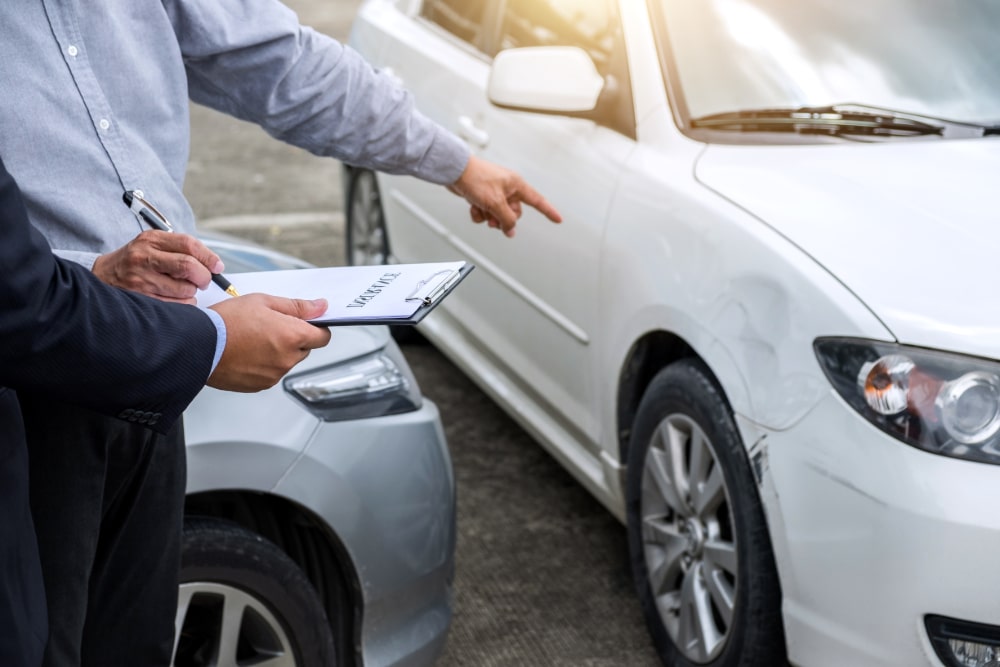If you’ve been in a car accident in New Jersey, one of the first questions you may have is, “Is New Jersey a no-fault state?” The answer is yes. However, what that means for your legal rights, medical bills, and potential compensation can be confusing.
At Glugeth & Pierguidi, P.C., we talk to car accident victims every day who are dealing with this exact situation. If you’re trying to understand how New Jersey no-fault insurance laws affect your injury claim, you’re not alone. This post will walk you through what no-fault means, how it impacts your ability to sue, and what steps you can take if you’ve been seriously injured.
What Is No-Fault Insurance?
Let’s start with the basics: What does no-fault insurance mean?
In a no-fault system, your own car insurance company pays for your medical expenses and some other economic losses, regardless of who caused the accident. These benefits are known as Personal Injury Protection (PIP).
No-fault insurance is meant to streamline the claims process for minor injuries. It avoids the need for immediate lawsuits and helps injured drivers, passengers, and even pedestrians access medical care more quickly.
However, a no-fault coverage system has its limits, and understanding those limits is key to protecting your rights.

How No-Fault Works in New Jersey
New Jersey is one of a handful of states that use a choice no-fault system, which means drivers have options when selecting their coverage. However, all policies come with a mandatory PIP component.
Here’s how it typically works:
- After an accident, you file a claim with your own insurance to cover medical expenses, even if the other driver was at fault;
- Your PIP benefits pay for medical treatment, rehabilitation, and sometimes lost wages and essential services like household help; and
- Your ability to sue the at-fault driver depends on the type of insurance policy you chose and the severity of your injuries.
It’s a system that tries to balance convenience with control, but it can quickly become complicated when injuries are severe or long-term.
What Does PIP Cover?
Your Personal Injury Protection (PIP) benefits usually include:
- Doctor visits and hospital care,
- Physical therapy and rehab,
- Diagnostic tests (like MRIs or X-rays),
- Surgical procedures,
- Prescription medications,
- Lost income (up to a certain limit), and
- Funeral expenses in fatal crashes.
PIP does not cover property damage. For that, you’d need collision or comprehensive coverage. Or, you can pursue a claim against the at-fault driver’s property damage liability insurance.
Can You Still Sue the Other Driver?
This question is one of the most common ones we hear. If New Jersey is a no-fault state, can I still file a personal injury lawsuit?
The answer is: Yes, but it depends. Your ability to sue the other driver hinges on two main factors:
1. Your Insurance Selection: “Limitation on Lawsuit” vs. “Unlimited Right to Sue”
When buying auto insurance in New Jersey, you must select either Limited or Unlimited Right to Sue. If you opt for Limited Right to Sue, you can only sue the other driver for noneconomic damages (like pain and suffering) if you sustained certain types of serious injuries, such as:
- Loss of a body part,
- Significant disfigurement or scarring,
- Displaced fractures,
- Loss of a fetus,
- Permanent injury, or
- Death.
Choosing an Unlimited Right to Sue means you can pursue a lawsuit for pain and suffering regardless of injury severity. This option gives you more flexibility, but it comes with higher premiums.
Many New Jersey drivers don’t realize what they selected until it’s too late. If you’re unsure what kind of coverage you have, we can help you find out.
2. The Severity of Your Injuries
Even with a limited lawsuit option, you can still file a claim if your injuries meet the state’s legal threshold. At Glugeth & Pierguidi, we work closely with your doctors and review your medical records to determine if your injuries legally qualify.
How No-Fault Laws Affect Personal Injury Claims
New Jersey’s no-fault laws were intended to reduce minor lawsuits and speed up compensation. However, they also put more pressure on injured victims to prove the seriousness of their injuries. And, in some cases, they limit access to full compensation.
Here’s how these laws can impact your case:
- You must use PIP before suing for medical bills, even if the other driver was clearly at fault;
- Pain and suffering claims are limited under the “limitation on lawsuit” threshold;
- Low PIP limits can leave you underinsured, especially if you need surgery or long-term care; and
- Disputes are common, especially when insurance companies try to minimize or deny claims based on the type of injury.
These complexities make it especially important to speak with an attorney if you’ve suffered anything more than a minor injury.
Common Misconceptions About New Jersey No-Fault State Laws
A lot of confusion surrounds no-fault insurance. Here are a few things we often have to clarify for clients:
- No-fault doesn’t mean no one is at fault. Fault still matters when it comes to lawsuits involving serious injuries.
- You can still sue in severe cases. No-fault laws don’t eliminate your right to file a lawsuit; they limit it in certain situations.
- Even passengers and pedestrians can use PIP. You don’t have to be driving to receive no-fault benefits.
- You may have more coverage than you think. Additional policies, like underinsured motorist (UIM) coverage, may also come into play.
Understanding these misconceptions can help you make more informed choices after a crash. No-fault laws don’t take away your rights, but they do make it more important to know where those rights begin and end. If you’re ever unsure, speaking with an experienced attorney can give you the clarity and direction you need.
Why You Should Talk to a Lawyer After a Crash
Navigating New Jersey’s no-fault system on your own is difficult, especially when you’re recovering from an injury. At Glugeth & Pierguidi, P.C., we help clients:
- Understand their coverage and PIP limits;
- Determine if they qualify to sue for pain and suffering;
- Handle denials, delays, and lowball settlement offers;
- Maximize compensation from all available sources; and
- Fight back when insurance companies try to limit their claims.
We’re not a call center. When you reach out, you’ll speak directly with one of our attorneys, and we’ll walk you through your options without pressure.
Contact a New Jersey Car Accident Attorney Today
Don’t let confusion over insurance laws and the fact that New Jersey is a no-fault state keep you from getting the help you need. Whether you’re being denied PIP benefits or wondering if your injuries qualify for a lawsuit, our attorneys are here to answer your questions and stand by your side.
Call Glugeth & Pierguidi, P.C., today to schedule your free consultation. There’s no fee unless we recover money for you. When you need assistance navigating New Jersey’s no-fault laws, you’ll find it here.


